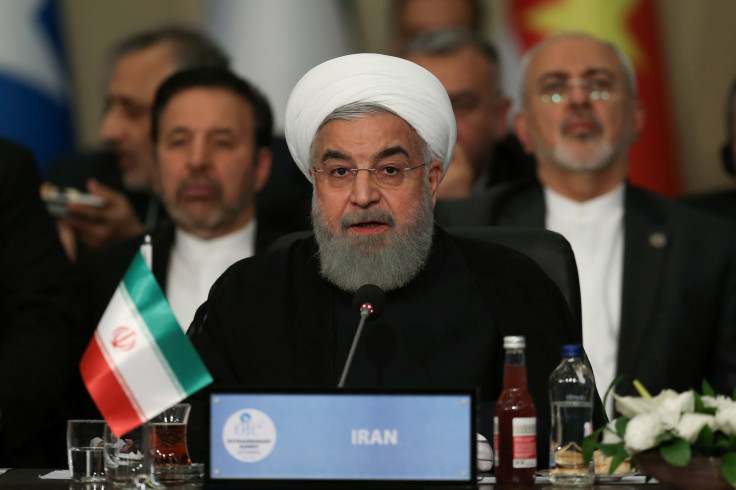Iranian President Hassan Rouhani said Tuesday his country is in a "fight" with the U.S., a day after protesters angered by Iran's tanking economy confronted police in front of parliament.
In a televised speech, Rouhani blamed the U.S. for Iran's woes and said the U.S. is trying to damage the country by creating "an economic war."
"The U.S. cannot defeat our nation, our enemies are not able to get us to their knees," he said.
Rouhani's comments came after thousands of protesters angered by Iran's tanking economy confronted police in front of parliament Monday. It was the first such confrontation since similar demonstrations rocked the country at the start of the year.
The demonstration signaled widespread unease in the wake of President Donald Trump's decision to withdraw the U.S. from Tehran's nuclear deal with world powers and restore sanctions on the country.
It wasn't immediately clear who led Monday's protests. Iran's semi-official news agencies, Fars, ISNA and Tasnim, described the protests at the Grand Bazaar as erupting after the Iranian rial dropped to 90,000 to the dollar on the country's black market, despite government attempts to control the currency rate.
Videos posted to social media showed protesters at the bazaar heckling shopkeepers who refused to close.
Tehran's sprawling Grand Bazaar has long been a center of conservatism in Iranian politics and remains an economic force within the country — despite the construction of massive malls around the city. Bazaar families opposed the Iranian Shah Mohammad Reza Pahlavi and supported the 1979 Islamic Revolution that replaced him with a Shiite theocracy and elected officials.
Prosecutor Abbas Jafari Dolatabadi said the "main provocateurs" who planned the protest and threatened shopkeepers to close their stores were arrested. He did not elaborate on the number of people detained.
Still, semi-official ISNA news agency reported the country's parliament speaker, Ali Larijani, said Tuesday that the Rouhani administration hasn't done enough to confront the economic problems.

Rouhani's government has struggled with the economic problems, including high unemployment. A government-set exchange rate of 42,000 rials to $1 has generated a vibrant black market. On Monday, state television quoted Iranian Central Bank chief Valiollah Seif as saying the government plans to create a parallel market next week to combat the black market.
Meanwhile, some hard-liners have called for new elections or for Rouhani's civilian government to be replaced by a military-led one. The Fars news agency, believed to be close to Iran's paramilitary Revolutionary Guard, made a point Monday to publish an article from the Sobh-e No daily newspaper describing the government as being ready to "bow down to foreign threats and sit at the negotiation table."
Eshaq Jahangiri, Iran's first vice president, was quoted Monday as saying "we're on the verge of an economic war by an economic terrorist," referring to the United States.
At the end of last year, similar economic protests roiled Iran and spread to some 75 cities and towns, becoming the largest demonstrations in the country since its 2009 disputed presidential election. The protests in late December and early January saw at least 25 people killed and nearly 5,000 arrested.
Iran has announced a list of 15 demands for improving relations with the United States, including a U.S. return to the 2015 nuclear accord, in response to a similar list of demands made by Washington last month.
In May, U.S. Secretary of State Mike Pompeo called for a wholesale change in Iran's military and regional policies, threatening the "strongest sanctions in history" if it refused. The U.S. withdrew from the landmark nuclear agreement with world powers earlier that month.


